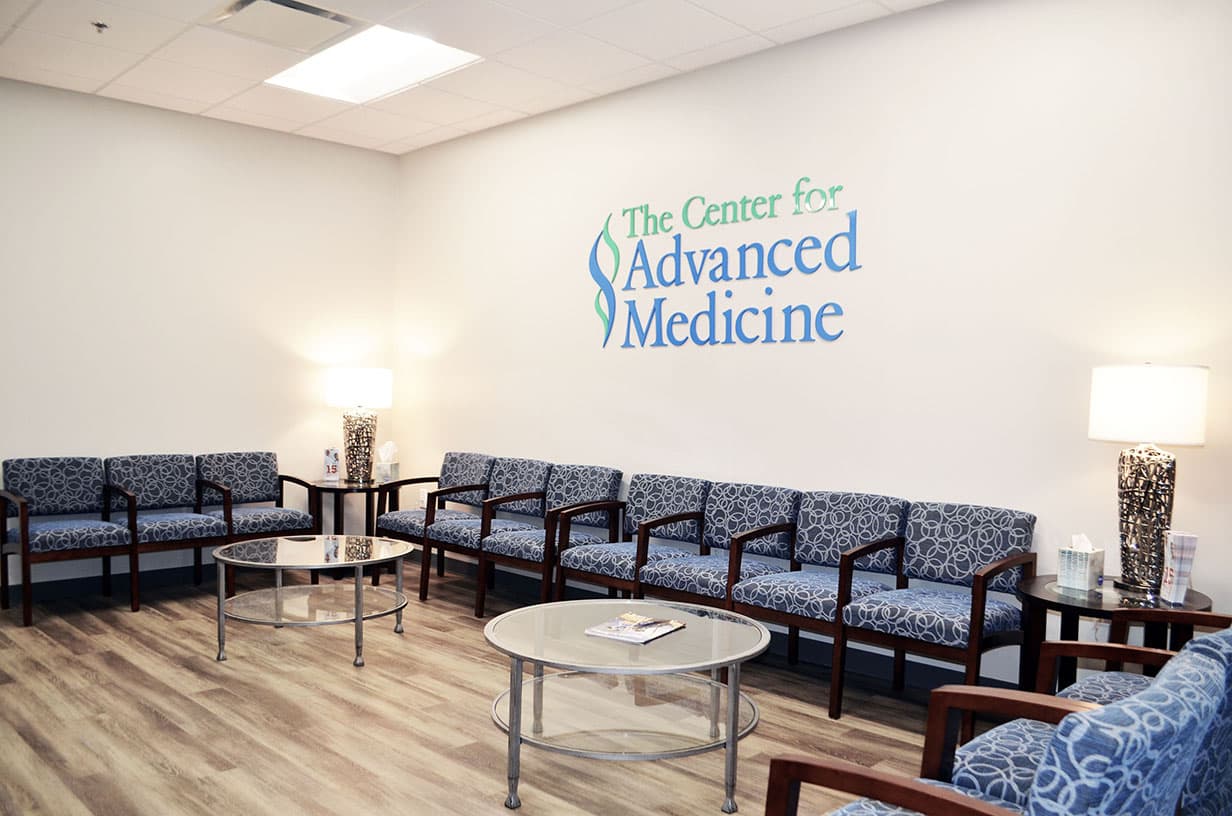Chemotherapy is a rigorous and overwhelming treatment that takes a toll on a cancer patient’s body, mind, and mental health.
That’s why preparing for each chemotherapy appointment in the best way possible can stack the cards in your favor helping you mitigate side effects and increase your chance of a positive treatment outcome.
In this comprehensive guide, we are exploring the 5 BEST things every cancer patient should consider doing before starting their chemotherapy regimen.
You’ll want to try every one of these.
1. Intermittent Fasting
Intermittent fasting has gained increased attention for its potential benefits in cancer treatment. Some studies convincingly show that fasting for short periods before chemotherapy can decrease toxicity and simultaneously increase the effectiveness of a wide variety of chemotherapy agents.
The Science Behind Intermittent Fasting and Cancer
Research has shown that intermittent fasting can enhance the effectiveness of chemotherapy drugs while reducing their side effects. The fasting state triggers a process called autophagy, where cells break down and remove damaged components. This not only helps to protect healthy cells but also makes cancer cells more susceptible to chemotherapy.
In 2019, the Journal of Experimental & Clinical Cancer Research published a study that highlights the potential benefits of intermittent fasting (or short-term fasting) in enhancing the efficacy of chemotherapy. The article suggests that intermittent fasting can protect healthy cells from the toxic effects of chemotherapy while making tumor cells more sensitive to treatment.[1]
The mechanism behind this is called "differential stress resistance" (DSR), where nutrient deprivation leads healthy cells to invest in maintenance and repair, thus becoming more resistant to chemotherapy.
On the other hand, tumor cells, which are already in a state of high metabolic activity, become more sensitive to treatment. The article also mentions that intermittent fasting has little to mild side effects like headaches, dizziness, and short-term weight loss, making it a promising strategy for cancer patients.[1]
Intermittent fasting may not be suitable for all cancer patients, especially those with severe weight loss or malnutrition.
2. Beta Glucan Bio-hacking
Beta Glucans are natural nutrients found in foods like bakers yeast, oats, barley, and certain mushrooms. They have been proven to boost the immune system and may provide healing for cancer patients.
It works by activating every immune cell in the body, such as macrophages, neutrophils, basophils, and natural killer cells. These cells are the body's first line of defense against foreign invaders like cancer cells. When the immune system encounters these invaders, beta glucan puts the immune cells on "high alert," enabling a more effective and appropriate immune response.
Since the immune system is often compromised during chemotherapy, beta glucans help restore the immune system to its optimal function making this supplement a weapon every cancer patients needs when undergoing chemotherapy.
Research on Beta Glucan’s benefits for cancer patients
Beta Glucan has over 50 years of research and more than 200,000 studies published on PubMed.gov that support the efficacy of beta glucan.
According to a 2014 study by Dr. Vaclav Vetvick PhD., glucan has been found to protect bone marrow against the toxic effects of chemotherapy. The study also suggests that Beta Glucan could be used as an inexpensive solution to reducing the adverse effects of chemotherapy and other environmental toxins. [2]
A study published in the journal "Cancer Immunology, Immunotherapy" found that beta glucans can enhance the effectiveness of anti-cancer drugs while reducing their side effects [3].
Another study in "Immunology Letters" showed that beta glucans can modulate the immune system and have potential anti-cancer properties [4].
Now, not all beta glucans are created equal.
A study by the University of Louisville found that Better Way Health's Beta Glucan was the most effective supplement out of hundreds tested. It was found to be 8 times more effective than a leading mushroom beta glucan and 160 times more effective than another competitor that we won’t even name because it’s so bad..
Also, their Beta Glucan is the safest and purest form of beta glucan available on the market. It is tested twice for purity and potency. The FDA has even given it a GRAS (Generally Recognized as Safe) rating, ensuring that there are no known side effects or adverse reactions associated with taking this product. This is basically FDA-Approved for supplements.
The thing is, if you were to try and purchase this same Beta Glucan from the leading research supplier, it would cost you $423,000!!! [5]
Luckily, their proprietary purification method has made this powerful supplement affordable for every cancer patient.
If you're gearing up for chemotherapy, Better Way Health Beta Glucan isn't just a good-to-have; it's a must-have.
It's the single most effective and safest way to boost your immune system
Pick up some Beta Glucan NOW and check off step 2 from your chemotherapy prep-list.
3. Adequate Hydration
This one is pretty straightforward. Staying hydrated is crucial when preparing for chemotherapy. Dehydration can exacerbate the side effects of treatment, such as fatigue and nausea. So, make sure to drink plenty of water (studies show about 6-11 cups per day is right for the average person). [6]
If you’re looking for the perfect water bottle to take to your chemotherapy appointments, consider this top-rated motivational, toxin-free, and portable 64oz (that’s 8 cups) water bottle.
4. Regular Exercise
Amidst a cancer diagnosis, it's easy to overlook something as seemingly simple as exercise. However, dismissing physical activity as a proactive way to support your treatment regimen could be a significant oversight.
Physical activity can serve as a therapeutic ally, working in tandem with medical treatments to enhance their efficacy. Studies have shown that exercise can alleviate some of the debilitating symptoms experienced during and after chemotherapy, such as fatigue, muscular weakness, and even cognitive impairments. [7]
Think of it as your body's natural way of counteracting some of the harsh side effects of cancer treatment.
Exercise shouldn’t be merely an add-on; it's an integral part of a holistic approach to cancer care. It's time to move beyond viewing exercise as an optional lifestyle choice and start recognizing it as a critical component of your pre-chemotherapy preparation and overall cancer journey.
Now, you might be wondering, "Is it safe for me to exercise?" The same PubMed article acknowledges that research gaps exist concerning the safety of physical activity among all cancer survivors.
However, this shouldn't deter you from incorporating exercise into your routine. The key is to consult your doctor to tailor an exercise regimen to your current physical abilities.
So, as you prepare for chemotherapy, don't underestimate the power of exercise. Whether it's a brisk walk, a swim, or even a yoga session, make physical activity a non-negotiable part of your cancer treatment plan.
A meta-analysis published in the "Journal of Clinical Oncology" showed that exercise can significantly reduce fatigue in cancer patients [8].
By embracing exercise, you're not just surviving; you're thriving. And isn't that what this journey is all about?
5. Create a Sense of Normalcy
As you prepare for chemotherapy, it's natural to feel like your life has been upended. The looming treatment can completely destroy your daily routine, making everything seem abnormal and uncertain.
However, maintaining a sense of normalcy can be a psychological anchor during this season of healing.
According to a study published in the "Journal of Clinical Psychology," sticking to a routine can significantly reduce stress and anxiety, which are common emotional challenges faced by cancer patients. Routines act as a stabilizing force, providing a framework that lends structure to your day. [9]
This structure can be incredibly comforting when you're dealing with the unpredictability of a cancer diagnosis and subsequent treatment.
Spending quality time with loved ones is not just a feel-good activity; it has tangible health benefits.
A meta-analysis in "Health Psychology" found that strong social support could improve health outcomes in cancer patients. By engaging in your usual social activities, you're not just distracting yourself from the disease; you're actively contributing to your psychological well-being, which can, in turn, positively impact your physical health. [10]
Don't underestimate the power of engaging in activities that bring you joy. Whether it's reading, painting, or gardening, hobbies can serve as a therapeutic outlet.
A study in the "European Journal of Cancer Care" suggests that engaging in pleasurable activities can improve the quality of life for cancer patients. These activities can act as a form of escapism, allowing you to step away from your cancer identity, even if it's just for a little while.
As you gear up for chemotherapy, take a moment to sketch out what a "normal" day looks like for you. Try to stick to this routine as closely as possible, making adjustments as needed. Engage in your usual activities, spend quality time with loved ones, and don't forget to indulge in your hobbies.
Conclusion
Preparing for chemotherapy is a multifaceted endeavor that goes beyond medical logistics; it's about equipping your mind, body, and soul for the journey ahead.
By incorporating these five best practices—intermittent fasting, Beta Glucan, adequate hydration, exercise, and maintaining a sense of normalcy—you're not just preparing for treatment; you're stacking all of the cards in your favor.
By taking these proactive steps, you're not merely surviving; you're thriving.
References
[1] de Groot S, Pijl H, van der Hoeven JJM, Kroep JR. Effects of short-term fasting on cancer treatment. J Exp Clin Cancer Res. 2019 May 22;38(1):209. doi: 10.1186/s13046-019-1189-9. PMID: 31113478; PMCID: PMC6530042.
[2] Vaclav Vetvicka. Biomed Pap Med Fac Univ Palacky Olomouc Czech Repub. 2014 Mar; 158(1):1-4.
[3] Cheung, NK.V., Modak, S., Vickers, A. et al. Orally administered β-glucans enhance anti-tumor effects of monoclonal antibodies. Cancer Immunol Immunother 51, 557–564 (2002). https://doi.org/10.1007/s00262-002-0321-3
[4] Orleen A. Hoffman, Eric J. Olson, Andrew H. Limper, Fungal β-glucans modulate macrophage release of tumor necrosis factor-α in response to bacterial lipopolysaccharide, Immunology Letters
[5] Glucan from baker’s yeast form Sigma Aldrich https://www.sigmaaldrich.com/US/en/product/sigma/g5011
[6] How many cups of water per day should I drink? https://nutritionfacts.org/video/how-many-glasses-of-water-should-we-drink-a-day/
[7] Mustian KM, Sprod LK, Palesh OG, Peppone LJ, Janelsins MC, Mohile SG, Carroll J. Exercise for the management of side effects and quality of life among cancer survivors. Curr Sports Med Rep. 2009 Nov-Dec;8(6):325-30. doi: 10.1249/JSR.0b013e3181c22324. PMID: 19904073; PMCID: PMC2875185.
[8] Scott JM, Zabor EC, Schwitzer E, Koelwyn GJ, Adams SC, Nilsen TS, Moskowitz CS, Matsoukas K, Iyengar NM, Dang CT, Jones LW. Efficacy of Exercise Therapy on Cardiorespiratory Fitness in Patients With Cancer: A Systematic Review and Meta-Analysis. J Clin Oncol. 2018 Aug 1;36(22):2297-2305. doi: 10.1200/JCO.2017.77.5809. Epub 2018 Jun 12. PMID: 29894274; PMCID: PMC6804903.
[9] Andersen BL. Psychological interventions for cancer patients to enhance the quality of life. J Consult Clin Psychol. 1992 Aug;60(4):552-68. doi: 10.1037//0022-006x.60.4.552. PMID: 1506503; PMCID: PMC2743106.
[10] Zeidman A, Benedict C, Zion SR, Fisher S, Tolby L, Kurian AW, Berek JS, Woldeamanuel YW, Schapira L, Palesh O. Association of illness mindsets with health-related quality of life in cancer survivors. Health Psychol. 2022 Jun;41(6):389-395. doi: 10.1037/hea0001186. PMID: 35604702; PMCID: PMC9870319.

